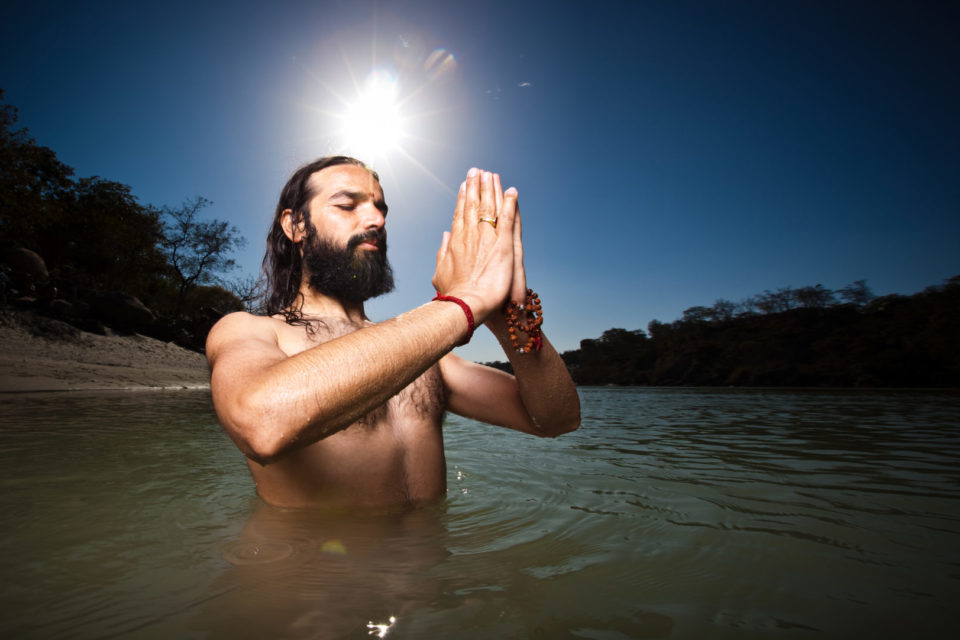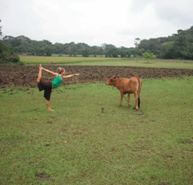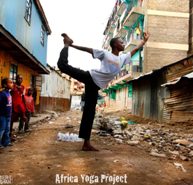A Tale of Two Siddhis: Yogrishi Vishvketu, the Urban Yogi

With a PhD in psychology from Yale University, Bonnie is…
Photography by Martin Prihoda
When we hear about the evolution of yoga in the West, it’s usually from Westerners who have studied in the East. Yogrishi Vishvketu, founder of Akhanda Yoga, made the journey in the opposite direction. Vishva-ji, as he is more informally known, grew up in northern India and began studying yoga and the Vedic arts at eight years old, never imagining that he would one day not only travel to the West, but settle there and become a highly successful yoga teacher, author and role model in a culture that, on the surface, seems to have more differences than similarities to his homeland.
The name Vishvketu was given to him by his own guru and may have foretold Vishva-ji’s destiny, although he didn’t understand that at the time. Vishva translates as “world” and ketu as “bridge,” “flag,” or “star.” How fitting, then, that he would devote his life to bridging the two worlds of yoga in the East and West.
As a young man, Vishva-ji studied at university and eventually attained two advanced degrees in yoga philosophy. During this time he met his teacher, Baba Prem Nath, and joined the Yoga Niketan ashram in Rishikesh. After a three-month silent retreat, he emerged with a much clearer vision of how he could live up to the name his teacher had given him. “I understood the meaning of my name, that I would help translate the yoga wisdom tradition and authentic techniques to students in other parts of the world.” In 2001, Vishva-ji accepted a position as a yoga teacher in residence at a large Hindu Temple in Brampton. He would later marry and move to Ottawa, where he currently spends his time when he is not at his Anand Prakash Yoga Ashram in Rishikesh.

His background places him in an excellent position for observing the similarities and differences between the pure yoga of the far-flung Indian ashram and its descendants in the bustling urban landscapes of the modern West.
East, meet West
How does Vishva-ji feel about the current state of yoga in the Western world? Are we getting it right, or misappropriating the culture by straining to make it fit our own lifestyles?
“I am very pleased to see that yoga is spreading well in the West and helping people in many ways in their lives, physically, emotionally and even spiritually,” Vishva-ji notes. But he is quick to add that a discomfort can arise when yoga is combined with something else, but still called yoga. He offers “yoga and wine,” “yoga with weights,” and “naked yoga” as examples.
“This becomes uncomfortable because you’re really changing the intention of the practice to something that is unrecognizable as ‘yoga’ – and yet you’re still capitalizing on that name, on that word.” (He acknowledges that in India there are naked ascetics, but notes that this practice fits within a lineage, philosophy, and cultural context that differentiate it from the ‘naked yoga’ one might find in the West.)

The Yogi and the Bagel
Undoubtedly, the nuances of naked yoga are not the only difference between Canada and India that Vishva-ji has had to contend with. There are cultural, economic, social, and even meteorological differences as well. He tells a funny story about the winter day when he first visited a bagel shop.
For more information about Vishva-ji, please visit akhandayoga.com.
What's Your Reaction?
With a PhD in psychology from Yale University, Bonnie is on a mission to find the best insights that the field has to offer and to share them with the world. Her online courses, Life Beyond Fear blog, and guided meditations at DrBonnieLynch.com bring you the very best that psychology and related disciplines have to offer in plain English, and ready to use!











